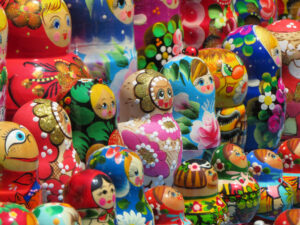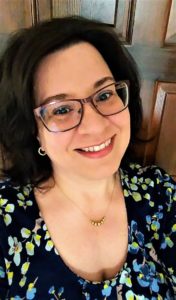 I moved into my new office in the middle of a monsoon downpour on a Friday afternoon. It feels auspicious when something begins in the middle of a weather adventure. Monsoon rains, moving up and down four flights of stairs, dodging a heavy and steady rainfall running under eaves and awnings as best as I could, trying to keep dry. Then, moving furniture, sweat dripping off my forehead, hoping none of my new colleagues came by to shake my hand or comment on the state of my wet, dripping self on the seemingly new carpet. I imagined what students would see as they entered the space and set about making it as comfortable as possible.
I moved into my new office in the middle of a monsoon downpour on a Friday afternoon. It feels auspicious when something begins in the middle of a weather adventure. Monsoon rains, moving up and down four flights of stairs, dodging a heavy and steady rainfall running under eaves and awnings as best as I could, trying to keep dry. Then, moving furniture, sweat dripping off my forehead, hoping none of my new colleagues came by to shake my hand or comment on the state of my wet, dripping self on the seemingly new carpet. I imagined what students would see as they entered the space and set about making it as comfortable as possible.
After spending most of last year mourning the loss of a teaching job that I loved, I had made it through a grueling (and humiliating) hiring process at the same place I had started teaching five years ago. Instead of feeling elated, I felt—sad. I put humiliating in parenthesis, but that was the feeling I couldn’t shake. I learned early in my career from a very direct boss that “everyone is replaceable,” but she never told me that in addition to being replaceable, I would also be a cog in the wheels of the ongoing hiring industrial complex at every workplace for the rest of my career. I put down my feelings at first, grateful to rejoin a team of people I had grown close to as personal friends, and then admonished myself for being sad despite the good fortune of having regained my old position mid-pandemic. I was lucky, wasn’t I?
But I couldn’t sleep, and I bumbled through my days in a worse malaise than when we were all sequestered at home. And I couldn’t shake this feeling even after talking with some dear friends about my dilemma, which maybe I downplayed because I felt selfish worrying about my own happiness. It is hard to tell others how I really feel without thinking that I sound flaky and melodramatic, at least in my mind. The shift in my thinking happened when I reflected on my pandemic promises I had made: to be a better version of myself and not to get sucked into everyone else’s version of “normal.” Little by little, I listened more to the voice in my head and tried to understand the heaviness in my heart.
There is, of course, an in-between place where many of us find ourselves and where I languished. For a few weeks, I told myself it would be just fine to keep doing what I’ve been doing regarding work, despite the aphorism that behavior as such leads to a form of insanity. I could make other changes in my life to balance my work compromises. As I was thinking through this decision, I also listened more closely to the world around me. First, a poet I admire said that every book he writes is different because he “distrusts anything that worked once before.” Next, a friend told me that her dream for me is that I would stop making myself “small,” and went into some detail to illustrate what that looked like from her perspective. Then, someone I knew only peripherally called to discuss a different teaching opportunity. I connected these moments together as a kind of grand message to myself. The human brain loves pattern, and mine put these three instances on the turntable of my repeating thoughts to make a new soundscape for myself: it was time to do something new. Again.
Change is almost always uncomfortable, and I find myself plagued with self-doubt every step of the way. However, it seems to be the one constant in my life, something I’m drawn to, even when I protest that I’m tired and need a break. Nietzsche wrote that among us are the “self-dissatisfied.” Instead of falling into regular routines, they view a life of constant upheaval as a responsibility and obligation to themselves. Self-awareness makes this possible; there really are no other traits or skills required. I never thought I would find myself agreeing with Nietzsche, or that, in this stage of my life, I would still be in constant motion. My expectation was that I would have settled down by now. This past year, and especially these past few weeks, showed me that I don’t seem to be built that way. Instead of hating myself for it, I wondered at these capabilities of mine.
In the middle of this change, I reached out to my friend, Miki, a photographer who has also concentrated more on his art the past several years. He shared a beautiful image he took at a rally recently and explained that his studies in portraiture now includes a wider lens to capture more of the scene. “It tells a somewhat different story,” he wrote. This moment of clarity allowed me to reframe my own experience. Rather than being upset that I was falling back into a pattern of making life more complicated than it needed to be, I’m embracing the messiness and learning to tell myself a different story.
In the end, I wrote poetry instead of essays this summer, quit the job that I loved and knew how to do, and accepted a new position that will challenge and change me as an educator and human. Nothing has been easy, but it’s not supposed to be, I keep reminding myself. I’m still plagued by insecurity and doubt. But, as nervous as I am, I’m actually sleeping at night. I’m laughing too loudly again. My brain keeps thinking of new writing exercises to share with students. Meetings with my new colleagues have been collaborative and fun. The deluge of sadness seems to have abated. These days, I find myself, mouth open, trying to catch every drop of newness rather than ducking my head in hopes that I don’t get wet.

